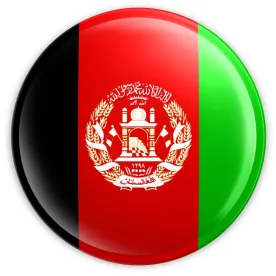On September 24, 2021, the Department of the Treasury’s Office of Foreign Assets Control (OFAC) issued General Licenses 14 and 15 and related FAQs, which authorize the provision of humanitarian assistance and the export of agricultural commodities, medicine and medical equipment to Afghanistan. These new General Licenses specifically authorize transactions involving the Taliban and the Haqqani Network, and entities owned more than 50% by these parties, provided that the transactions with these parties are “ordinarily incident and necessary to” provision of the goods and assistance specifically enumerated in the licenses. For practical purposes, this means financial transfers can be made to the Taliban and Haqqani Network, or their owned entities, only to pay taxes, fees, and import duties, or for permits, licenses, and public utility services, in relation to the activities described in the General Licenses. All other transactions remain prohibited.
Those seeking to provide humanitarian goods and services to Afghanistan must perform substantial due diligence to ensure (i) all of the parties involved in the transaction—from beginning to end—are identified, including their ownership, (ii) the proposed transaction fits within the limited scope of activities authorized by the General Licenses, and (iii) any payments to the Taliban and Haqqani Network, and their owned entities, is incidental and necessary to the authorized activity.
New General Licenses
General License No. 14 authorizes transactions involving the Taliban and the Haqqani Network, and their 50% or more owned entities, when the transactions [i] are “ordinarily incident and necessary to,” [ii] the provision of “humanitarian assistance to Afghanistan or other activities that support basic human needs in Afghanistan,” [iii] for certain specified entities.
As noted above, payments to the Taliban and the Haqqani Network, and their owned entities will be considered “ordinarily incident and necessary to” the described humanitarian assistance, only if the payments are for taxes, fees, import duties, permits, licenses, or public utility services.
“[H]umanitarian assistance to Afghanistan or other activities that support basic human needs in Afghanistan” is defined by FAQ 929 to include:
[T]he provision of relief services related to natural and man-made disasters, the provision of healthcare and health-related services, protection and assistance for vulnerable or displaced populations …, operation of orphanages, the distribution of articles (such as food, clothing, and medicine) intended to be used to relieve human suffering in Afghanistan, and training or other services related to any of the foregoing activities. Other activities that support basic human needs include activities to support non-commercial development projects in Afghanistan that primarily benefit poor or at-risk populations or otherwise relieve human suffering, including activities related to shelter and settlement assistance, food security, livelihoods support, water, sanitation, health, hygiene, and COVID-19-related assistance, among others, and training or other services related to any of the foregoing activities.
General License 14 only authorizes such humanitarian assistance when it is provided by the following entities and “their employees, grantees, contractors, or other persons acting on their behalf”:
-
The United States Government;
-
Nongovernmental organizations;
-
The United Nations, including its Programmes, Funds, and Other Entities and Bodies, as well as its Specialized Agencies and Related Organizations;
-
The International Centre for Settlement of Investment Disputes (ICSID) and the Multilateral Investment Guarantee Agency (MIGA);
-
The African Development Bank Group, the Asian Development Bank, the European Bank for Reconstruction and Development, and the Inter-American Development Bank Group (IDB Group), including any fund entity administered or established by any of the foregoing;
-
The International Committee of the Red Cross and the International Federation of Red Cross and Red Crescent Societies; and
-
The Islamic Development Bank.
Thus, assistance cannot be provided by any other entity, even if it otherwise qualifies as “humanitarian assistance” under General License 14.
General License No. 15 authorizes transactions involving the Taliban and the Haqqani Network, and their 50% or more owned entities, when the transactions [i] are “ordinarily incident and necessary to,” [ii] the export or reexport of “agricultural commodities, medicine, medical devices, replacement parts and components for medical devices, or software updates for medical devices to Afghanistan, or to persons in third countries purchasing specifically for resale to Afghanistan.”
Again, payments that are “ordinarily incident and necessary to” such transaction are limited to payments for taxes, fees, import duties, permits, licenses, or public utility services.
The remaining key terms of General License 15 have the following definitions:
-
“Agricultural commodities” include products that fall within the term “agricultural commodity” as defined in section 102 of the Agricultural Trade Act of 1978, and that are intended for ultimate use in Afghanistan as: (A) food for humans (including raw, processed, and packaged foods; live animals; vitamins and minerals; food additives or supplements; and bottled drinking water) or animals (including feed animals); (B) seeds for food crops; (C) fertilizers or organic fertilizers; or (D) reproductive materials (such as live animals, fertilized eggs, embryos, and semen) for the production of food animals.
-
“Medicine” [f]or the purpose of this general license…is an item that falls within the definition of “drug” in Section 201 of the Federal Food, Drug, and Cosmetic Act (21 U.S.C 321).
-
“Medical devices” [f]or the purpose of this general license…is an item that falls within the definition of “device” in Section 201 of the Federal Food, Drug, and Cosmetic Act (21 U.S.C 321).
General License 15, unlike General License 14, is not limited to transactions involving specific identified parties.
FAQs. In addition to FAQ 929 mentioned above, OFAC published three other FAQs to provide clarity to the General Licenses: FAQ 928, FAQ 930, and FAQ 931. Of note, FAQ 931 clarifies that Non-U.S. parties may facilitate or engage in transactions that would be authorized for U.S. persons under these General Licenses without risking secondary sanctions. Similarly, foreign financial institutions do not risk correspondent and payable-through account sanctions if they conduct or facilitate transactions that would be authorized for a U.S. person under the General Licenses. Non-U.S. parties, however, should take care to verify that they are not prohibited from conducting such transactions by non-U.S. export controls and sanctions.
Takeaways
Parties subject to OFAC sanctions currently providing or seeking to provide humanitarian aid or to export or reexport agricultural commodities, medicine, or medical devices to organizations and individuals in Afghanistan should review and consider General Licenses 14 and 15 and all four FAQs carefully. In particular, parties should verify that any provision of humanitarian aid, export, or reexport falls within the scope of the General Licenses and also verify that any humanitarian aid, export, or reexport does not entail financial transfers to the Taliban, the Haqqani Network, or any of their majority owned entities except as incidental and necessary to the authorized activity. Without local knowledge it may not be easy to identify the affiliation or ownership of individuals or entities in Afghanistan.
Parties should also consider the aggregate risk of providing aid to organizations and individuals in Afghanistan and take appropriate actions to mitigate any such risk.





 />i
/>i

